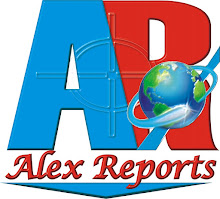Since the history of man, advancement in civilization has always been wrought by men who had a higher sense of purpose, who went beyond self to create and chart new courses for the entire human race. For them, life is measured by its donation. It is about sacrifice and service for the upliftment of others.
Anambra State, the pride of the East, boasts of numerous accomplished and exceptional personalities cutting across several fields, ranging from billionaire businessmen to captains of industry, world famous literary and music stars, successful sportsmen and great professionals. In fact, it is said that for every kilometer radius in Nnewi, there is a billionaire. However, there seems to be a disconnect from the sense of community, the ancient and eternal principle of our ancestors embedded in the phrase "onye aghana nwanne ya" (Be your brother's keeper). This is made possible by the monumental rise of individualism, the notion that wealth is measured by consumption and not by impact, that all there is to wealth are kilometer long convoys, private jets, large parties and gigantic mansions. The newest competition, it seems, is "My Mercedes is bigger than yours".
But that was not how our forebears lived in a balanced society, at peace with one another and with nature. That was not how we survived the genocidal civil war and rose up from the ashes of ruin. A story was told of Anthropologist Margaret Mead who was asked by a student on what she considered the first sign of civilization in a culture. The student was itching to hear Mead talk about fish hooks or clay pots. But Mead instead opined that the first sign of civilization in an ancient culture was a femur(thigh bone) that had been broken and then healed. According to the learned Professor, in the animal kingdom, having a broken femur was a death sentence. The animal can neither run from danger nor hunt for food let alone getting to the river for a drink. Obviously, she continued, no animal survives a broken leg long enough for the bone to heal. A broken femur that has healed is evidence that someone has taken time to nurse the wound and tended the person through recovering. Helping someone through difficulty is where civilization starts said Mead. We are at our best when we serve others.
And that is the essence of the search for the Anambra man of the year. It is meant to refocus the societal compass towards the sense of community, to once again turn the perspective of ndi Anambra beyond the here and now and onto something much bigger than ourselves with a keen sense of posterity.
The ideals of a society is defined by the heores they choose. The Anambra man of the year should be a figure who inspires through extraordinary deeds of triumphant beauty. He should have an elevated sense of wealth, seeing it not from the prism of acquisition of toys to flatter the ego of the owner and traumatize his community, making the poor to feel their poverty, but as a vehicle and a tool for communal advancement. The Igbo word for wealth is aku na uba. Aku loses its essence without uba. The uba implies employing the aku for the benefit and advancement of the community. A standalone aku is a narrow, selfish and underdeveloped sense of wealth. It is an aberration in traditional Igbo society.
The Anambra man of the year should have a higher sense of purpose, hitching his cart to values larger than himself. He should be am embodiment of sacrifice and full of compassion. He should be shown to understand the interconnectedness of the human race, for it is in lifting others that we are lifted.
The Anambra man of the year doesn't need to be a Saint. He is human too, with great challenges and frailties. It is having these shortcomings that gives him the human connection necessary to truly inspire us, urging us to become the better versions of ourselves for our fellow ndi Anambra and for the entire human race.
Who will the cap fit as Anambra man of the year 2020? Let the search begin.





.webp)


.jpeg)














Post A Comment: